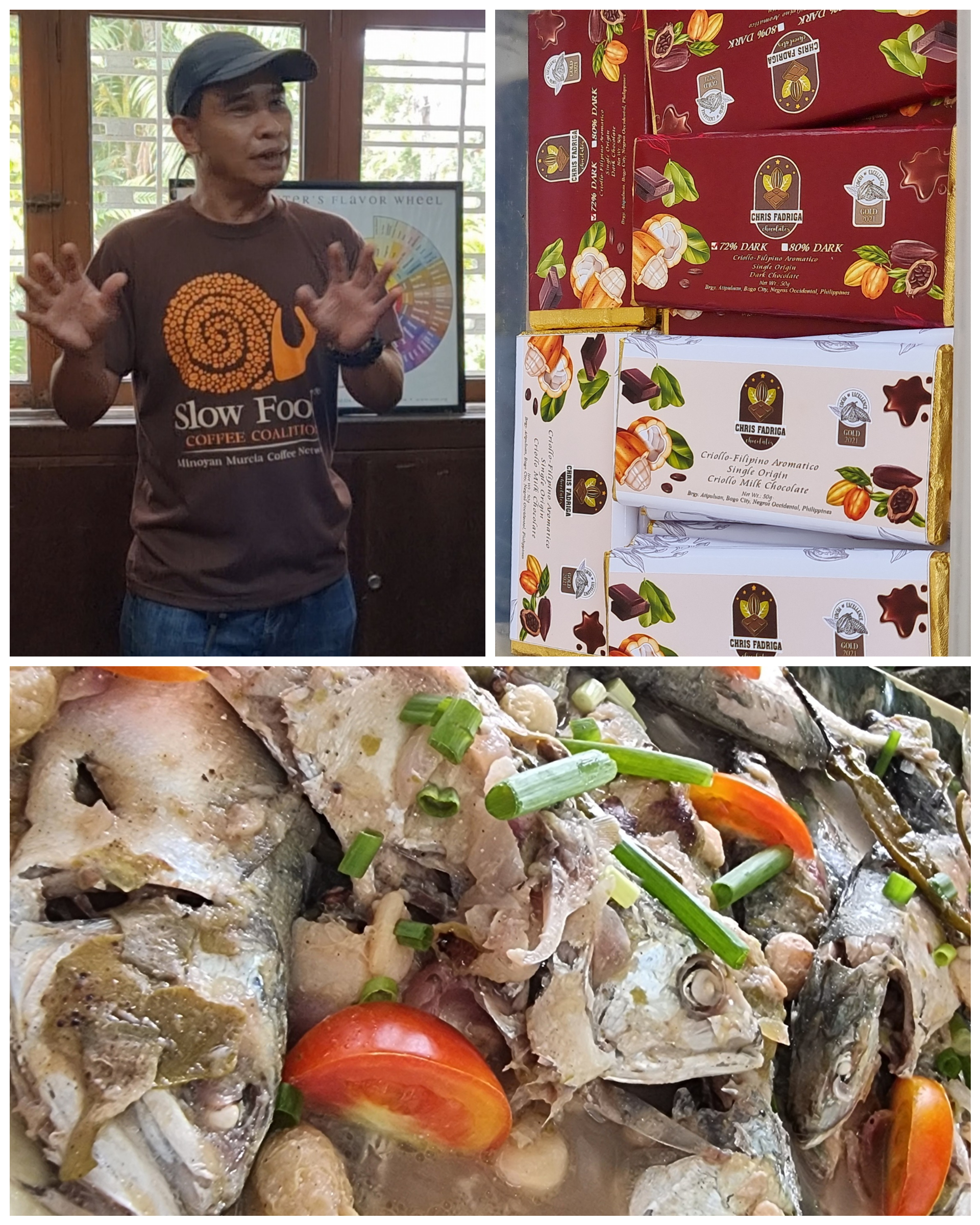
SILAY CITY—Batwan, a fruit resembling a tiny green apple, is used mostly as a souring agent in many popular dishes in Western Visayas such as Cansi; KBL (kadyos, baboy, langka); Pinalmahan, among others. The tree is indigenous to the region but difficult to propagate; it can take about two years before a seed grows shoots. As such, most of the fruits that actually make it to the market are found in the wild.
Batwan is just one of the many agricultural products that are included in the Ark of Taste, an international list of heritage food that need to be protected because of their limited production and small-scale cultivation. Leading the way in preserving these products, as well as introducing these to a new generation is Slow Food Negros.
The batwan fruit and saplings were one of the many indigenous food and ingredients showcased at the Negros Island Slow Food Earth Market inaugurated on May 27 at Casa A. Gamboa, here in Silay. Starting out as a pop-up market in March 2021, the Earth Market will now be held regularly on the last Saturday of every month. Reena Gamboa, spokesperson for Slow Food Negros, credits Negros Occidental (3rd District) Rep. Francisco Benitez for supporting the Earth Market.
Paying farmers fair market price
“Promoting and preserving our traditional food is of the utmost importance if we are to cultivate and continue Filipino culture to our future generations. We believe that the best way to do this is to talk to our main protagonists—the small farmers,” she said. “It’s through them that we can all learn what is endemic to our community, and the Earth Market will allow the community to deal directly with the farmers and pay them the fair price they’re due. By doing so, we value our local food sources and appreciate their importance—not only for our physical health, but also for our Filipino soul,” Gamboa added.
The Slow Food Earth Market initially featured 28 producers and farmers from Silay, Bago, Victorias and the town of Murcia. Other products featured Morado red bananas, heirloom rice in black and red varieties along with Adlai grains, robusta coffee from Mount Kanlaon, salt blocks called tultul, chocolate bars made of premium criollo cacao, dairy cheese, vegetables, mushrooms, honey, coconut oil and coconut sugar, and the local sinamak (spiced vinegar). There was also a goat roasting on an open spit for guests to partake.
Where to eat ‘slow food’
Slow Food Negros advocate Ramon Uy Jr., who also participated in the Earth Market, uses many ingredients included in the Ark of Taste at his farm-to-table restaurant Lanai by FreshStart in Bacolod City. “Slow Food is a global grassroots organization that wants to change our food system, for the better. We want everyone to have access to good, clean, fair food—good for the environment, health, and taste; clean, i.e., no chemicals that are harmful to us or the environment; and fair for both the consumers and producers,” he explained.
On Lanai’s menu, for instance, is Tsokolate Negrense, a hot, thick chocolate drink featuring criollo cacao, the most expensive cacao variety in the world, but grown extensively in Negros Occidental. It also has Kadios Falafel using local pigeon peas; Labuyo Blue Crab Salad, using sustainable blue swimming crabs; pizza using Negros Blue cheese with wild honey, and topped with organic arugula; a piaya using muscovado sugar, to name a few.
The Slow Food movement, with over 1 million activists in the world, is gradually taking hold in the Philippines. According to Slow Food International, there are 14 communities and 1 convivium across the country dedicated to the preservation of endangered and indigenous food products, and education on local heritage cuisine. (https://www.slowfood.com/nazioni-condotte/philippines/) There are about 86 Ark of Taste entries from the Philippines including Angel Wings Clam (Diwal), Barako Coffee, Tawilis, Lingaro berry, Pili nut, Tuba (coconut wine), among others.
